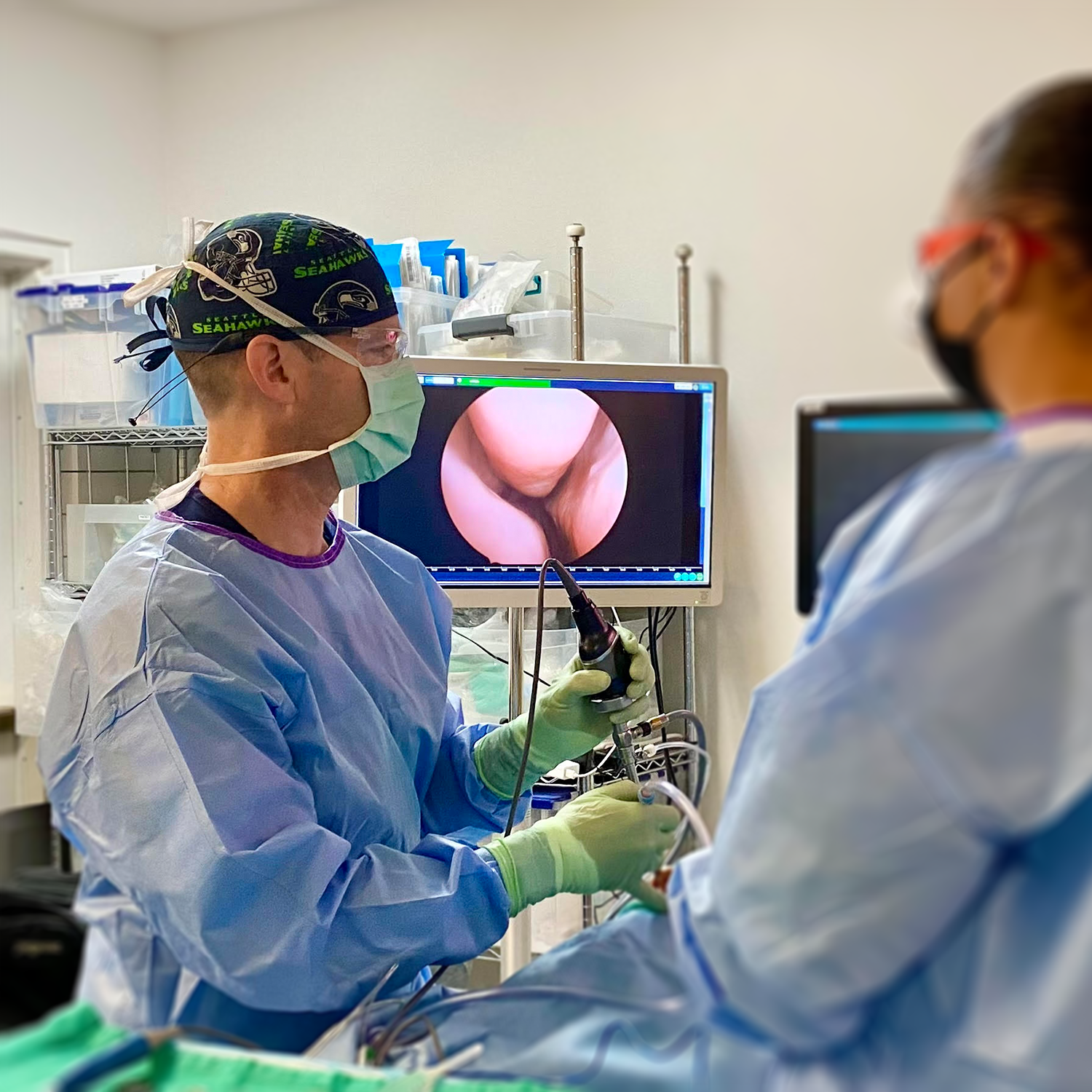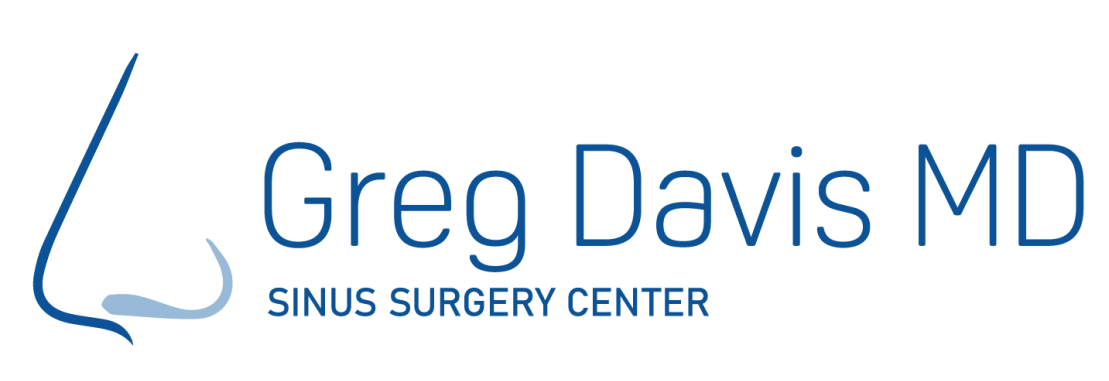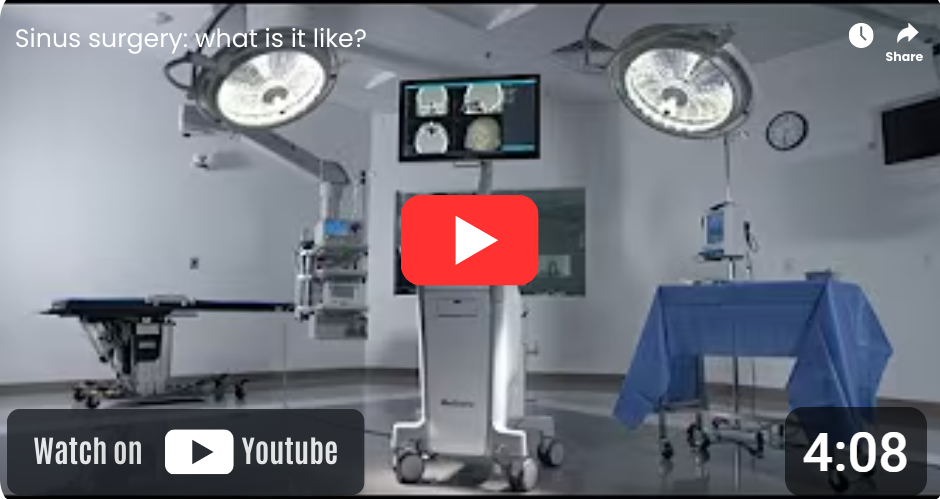Chronic rhinosinusitis (CRS) is a major health issue, impacting between 5% and 12% of the general US population. While many patients find relief through medications and lifestyle changes, some may require surgical intervention. This blog aims to provide patients with essential information on when to consider surgery for chronic sinusitis, the types of procedures available, and what to expect during the process.
What is Chronic Sinusitis?
Chronic sinusitis is a prolonged inflammation of the sinuses lasting more than 12 weeks despite treatment. It can be caused by infections, inflammation, and nasal polyps, , leading to symptoms such as:
- Nasal congestion
- Facial pain or pressure
- Reduced sense of smell
- Thick nasal discharge
- Post-nasal drip
Initial Treatments
Before considering surgery, doctors typically recommend non-surgical treatments, including:
- Nasal corticosteroid sprays: Reduce inflammation in the nasal passages.
- Nasal saline irrigation: Clears mucus and allergens from the nose.
- Oral corticosteroids: Help with severe inflammation, though usually short-term due to side effects.
- Antibiotics: Prescribed if a bacterial infection is present.
- Allergy medications: Address underlying allergies contributing to sinusitis.
When to Consider Surgery
Sinus surgery may be recommended if:
- Symptoms Persist Despite Treatment: If your symptoms do not improve with medication or other therapies, surgery might be necessary.
- Anatomical Blockages: Structural issues like a deviated septum or nasal polyps may require surgical intervention to improve sinus drainage.
- Recurrent Infections: Frequent sinus infections that do not respond to treatment might be alleviated through surgery.
- CT Scan Findings: Imaging showing blocked sinuses or other abnormalities can indicate a need for surgical evaluation.
- Quality of Life Affected: If chronic sinusitis significantly impacts your daily life, work, or sleep, surgery may offer relief.
Types of Sinus Surgery
Several surgical options are available for treating chronic sinusitis:
Functional Endoscopic Sinus Surgery (FESS)
FESS is the most common procedure for chronic sinusitis. It involves using an endoscope (a thin tube with a camera) to visualize the sinuses and remove blockages, such as polyps or infected tissue. The goal is to restore normal drainage and ventilation of the sinuses.
Balloon Sinuplasty
This minimally invasive procedure uses a small balloon to open blocked sinuses. Once the balloon is inflated, it gently expands the sinus opening, allowing for better drainage without the need for extensive tissue removal. This option is often suitable for patients with less severe disease.
Septoplasty
If a deviated septum contributes to chronic sinusitis, a septoplasty may be performed in conjunction with other procedures to improve airflow and drainage.
Nasal Polypectomy
For patients with significant nasal polyps contributing to their symptoms, a nasal polypectomy may be performed to remove these growths and improve sinus function.
What to Expect During Surgery
Preoperative Preparation
Before surgery, patients will undergo a thorough evaluation, including:
- A detailed medical history and physical examination
- Imaging studies (such as a CT scan) to assess sinus anatomy
- Allergy testing, if applicable
The Surgical Procedure
Most sinus surgeries are performed on an outpatient basis under general anesthesia or local anesthesia. The duration of the procedure varies depending on the specific surgery being performed but typically lasts between 30 minutes to two hours.
Recovery
Recovery time varies by procedure but generally includes:
- Resting for the first few days post-surgery
- Avoiding strenuous activities for at least a week
- Following specific post-operative care instructions provided by your surgeon, including nasal saline rinses and avoiding blowing your nose
Patients can expect some swelling and discomfort after surgery, which can be managed with pain medication. Most individuals return to normal activities within one to two weeks.
Top Sinus Doctor
Deciding if surgery is right for your chronic sinusitis depends on how bad and persistent your symptoms are, as well as what's causing them. Consulting a
top sinus expert like Dr. Greg Davis can help you make this decision. Dr. Davis is a highly regarded specialist in ear, nose, and throat care, co-directing important sinus courses and providing top-quality care in Puyallup. He treats every patient with care and respect, whether your condition is simple or complex. To schedule an appointment, call 253-770-9000.


Dr. Davis treats all his patients with the utmost care, respect, and kindness.
Have further questions for Dr. Davis? Make your appointment today. We look forward to helping you.
Business Hours
- Mon - Fri
- -
- Sat - Sun
- Closed
Address
104 27th Ave SE, Puyallup, WA, United States


